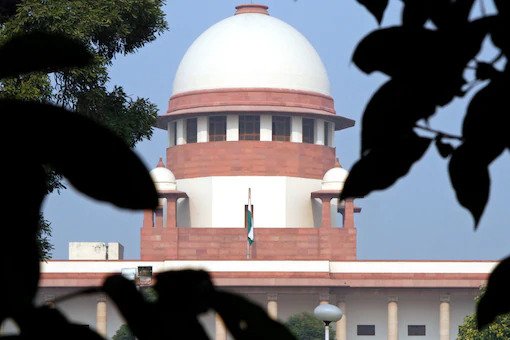NEW DELHI: Two days after defending the sedition statute in the Supreme Court, the Centre announced on Monday that it has chosen to examine the legislation on the orders of Prime Minister Narendra Modi. Union Minister of Law Kiren Rijiju stated that the shift in position was the result of Prime Minister Narendra Modi’s directive to reevaluate the colonial law’s relevance in modern times. The minister stated that PM Modi demanded the repeal of the old statute.
The Centre also informed the Supreme Court that examining and repealing outdated laws is a continuous process and that the Indian government had already repealed 1,500 laws since 2014-2015. In light of the Centre’s about-turn on the sedition law, IPC Section 124A, and the impending court hearing of the petitions challenging it, let’s clarify what this British-era criminal statute is and why it continues to face legal challenges.
WHAT IS SEDITION LAW (IPC 124A)?
Thomas Babington Macaulay, the British historian and statesman credited with introducing the western-style education system to India, authored the colonial-era statute against sedition in 1837. While the term “sedition law” appears in Section 124A of the Indian Penal Code (IPC), the word itself is not included in the clause.
This implies that what we refer to as the sedition legislation is not a separate Act of Parliament, but rather a section of the IPC, which encompasses all substantive areas of criminal law in India. According to the Oxford definition, sedition is “the use of words or deeds to promote opposition to a government.”
THE PENALTY UNDER IPC 124A
According to Section 124A of the Indian Penal Code (IPC), “Whoever, by words, either spoken or written, or by signs, or by visible representation, or otherwise, brings or attempts to bring into hatred or contempt, or excites or attempts to excite disaffection towards the Government established by law in India shall be punished with imprisonment for life, to which a fine may be added, or with imprisonment which may extend to three years, to which a fine may be added.”
PROBLEMS ARISING WITH IPC 124A IN INDIA
One of the major issues with the sedition legislation is that it is loosely defined and may be construed in a variety of ways, making it what its opponents call a convenient weapon for the government to abuse and punish political opponents.
What is considered bringing or attempting to bring into “hatred or contempt” or “attempt to excite disaffection” is nowhere clearly defined in official records, giving the government and the police the ability to charge individuals with sedition for something they did or said as part of their exercise of free speech.
Numerous intellectuals, human rights activists, filmmakers, university professors, students, and journalists have been charged with sedition throughout the years for criticizing the government or its policies.
In addition to the argument that sedition restricts the right to question, criticize, and change rulers, which is fundamental to the concept of democracy, those opposed to sedition believe that if the British, who introduced sedition to oppress Indians, have repealed the law in their own country, there is no reason why India cannot do the same.
THE ARGUMENTS IN SUPPORT
While we mostly hear reasons against the sedition statute, there are also arguments in its favour. Supporters of IPC Section 124A believe it is useful for countering anti-national, separatist, and terrorist groups. Another argument in favour of the sedition legislation is that it protects the elected government against violent and unlawful efforts to topple it.
RECENT CASES UNDER IPC 124A
Author Arundhati Roy, environmental activist Disha Ravi, journalist Siddique Kapan, activist Umar Khalid, Sharjeel Imam, Devangana Kalita, Natasha Narwal, Asif Iqbal Tanha, Gulfisha Khatoon, Ishrat Jahan, Saifoora Zargar, and Meeran Haider are renowned figures who have been charged with sedition.
While Arundhati Roy was charged with sedition for her controversial views on Kashmir, environmental activist Disha Ravi was charged with sedition for releasing a “toolkit” for a global web campaign supporting the farmers’ protest against the Centre’s three agricultural policies.
Journalist Siddique Kapan was charged with sedition for his suspected ties to the Popular Front of India (PFI), an extreme Islamic organisation.
In the meanwhile, activists Umar Khalid, Sharjeel Imam, Devangana Kalita, Natasha Narwal, Asif Iqbal Tanha, Gulfisha Khatoon, Ishrat Jahan, Safoora Zargar, and Meeran Haider have been charged with sedition for allegedly inciting rioting in Delhi in February 2020.
In 1891, the first documented application of sedition law occurred in a trial against newspaper publisher Jogendra Chandra Bose. The statute was also utilised against Bal Gangadhar Tilak, Mahatma Gandhi, Jawaharlal Nehru, Abul Kalam Azad, and Vinayak Damodar during the time.
This is not the first time the Supreme Court has considered the legitimacy of sedition. It was first considered by the court in the landmark case Kedar Nath v. State of Bihar (1962). In this instance, the court affirmed the constitutionality of the statute on the grounds that the state needs this authority to defend itself.
Nonetheless, the court stipulated that “a person may only be punished for sedition if his actions incited violence or had the aim or propensity to produce public disorder or disturb public peace.”
On May 10, the Supreme Court will hear petitions challenging the sedition statute brought separately by retired army officer SG Vombatkere, the Editors Guild of India, TMC MP Mahua Moitra, NGO PUCL, and certain journalists.
On May 5, a bench of three judges composed of Chief Justice N V Ramana and Justices Surya Kant and Hima Kohli announced that it would hear arguments on May 10 regarding the legal question of whether the petitions challenging the colonial-era penal law on sedition should be referred to a larger bench for reconsideration of the 1962 verdict of a five-judge constitution bench in the Kedar Nath Singh case.












